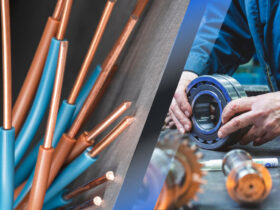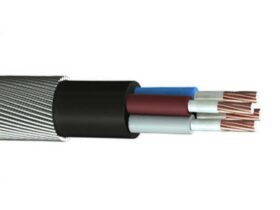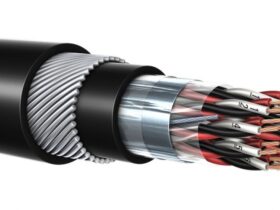Introduction:
Introduction:
In today’s interconnected world, where accurate data transmission is crucial across various industries, instrumentation cables play a pivotal role in ensuring precision and reliability. As a renowned manufacturer in the field, Relemac Cables takes pride in offering a wide range of top-quality instrumentation cables that meet the diverse needs of industries worldwide. In this article, we will delve into the world of instrumentation cables, exploring their purpose, construction, applications, and the key factors to consider when choosing a reliable manufacturer. Join us as we unravel the significance of instrumentation cables and their role in enabling seamless communication.
I. Understanding Instrumentation Cables:
A. Definition and Function:
- Defining instrumentation cables
- Importance of accurate data transmission
- Role in facilitating measurement and control systems
B. Construction and Components:
- Conductors: Solid, stranded, and shielded options
- Insulation and shielding materials
- Armor and sheathing considerations
C. Types of Instrumentation Cables:
- Pair cables: Twisted pair and individually shielded pair
- Triad cables: Triad and individually shielded triad
- Multi-pair cables: Advantages and applications
II. Advantages and Applications of Instrumentation Cables:
A. Precise Signal Transmission:
- Impedance control and signal integrity
- Minimizing crosstalk and electromagnetic interference
- Enabling accurate measurement and control
B. Versatility across Industries:
- Process control systems in manufacturing
- Oil and gas industry applications
- Power generation and distribution
C. Harsh Environment Resilience:
- Temperature and moisture resistance
- Chemical and abrasion resistance
- Outdoor and underground installations
III. Choosing the Right Instrumentation Cable Manufacturer:
A. Quality and Reliability:
- Adherence to industry standards and certifications
- Robust manufacturing processes and quality control
- Compliance with international regulations
B. Technical Expertise and Innovation:
- Manufacturer’s experience in instrumentation cable production
- Research and development capabilities
- Technological advancements and future-proof designs
C. Customization and Support:
- Tailored solutions for specific industry requirements
- Prompt technical support and troubleshooting
- On-time delivery and after-sales services
IV. Case Studies: Successful Implementations of Instrumentation Cables:
A. Industrial Automation and Control Systems:
- Enhancing productivity and efficiency
- Real-world examples of successful instrumentation cable implementations
B. Energy and Utilities:
- Enabling efficient power generation and distribution
- Notable projects showcasing the importance of instrumentation cables
C. Environmental Monitoring and Scientific Research:
- Precision data collection in research facilities
- Case studies highlighting the role of instrumentation cables in scientific endeavors
Conclusion:
Instrumentation cables form the backbone of accurate data transmission and control systems across industries. Relemac Cables, a trusted manufacturer, understands the critical role these cables play and offers a wide range of high-quality solutions to meet the specific requirements of different sectors. By comprehending the construction, advantages, and selection criteria for instrumentation cables, industry professionals can make informed decisions that enhance the efficiency and reliability of their systems. Remember, investing in reliable instrumentation cables is an investment in the seamless flow of accurate data and the success of your operations.
To explore Relemac Cables’ range of instrumentation cables and learn more about their commitment to precision and reliability, visit their official website: Relemac Cables Instrumentation Cables.














Leave a Reply